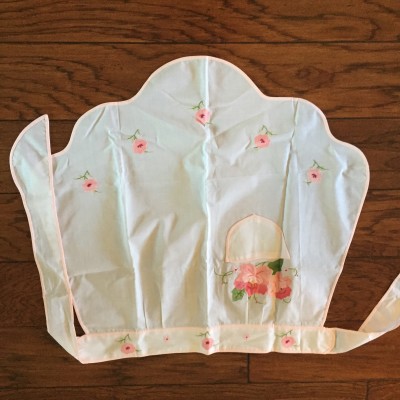
This collection, I hazard to even call a collection. I love to cook, so along the way I have been given many aprons. I only recall buying one apron for myself even though I have dozens. There were so many filling four drawers in my kitchen that I finally had to cull a few and store in the attic.
After my mom passed away and I was cleaning out her kitchen drawers, I found a treasure trove… my grandmother’s aprons. Many were handmade by my grandmother. All were simple, but beautiful. Some of the fabrics I recognized due to other items she had made. Maybe enough fabric was left from a dress she made for one of her daughters to make an apron for herself. Perhaps even enough was left from the apron to make a toaster cover.
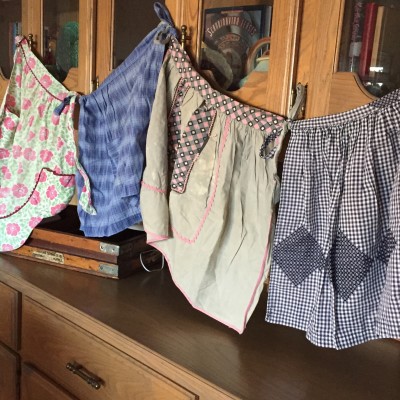
My grandmother passed away in 1969, so these aprons are old. The majority of them are half aprons or waist aprons, which tie around the waist. Although, she did have a few bib aprons, including a few over-the-neck styles and one that was more of a backwards vest (great to wear while cleaning house).
In my collection, I have one from India that an Indian classmate during my days at Bowling Green State University gave me. I have my first apron that I received as a wedding gift back in the 1990s. My most worn apron is a denim one that I purchased in the early 2000s. The denim is indestructible and never seems to retain a stain.
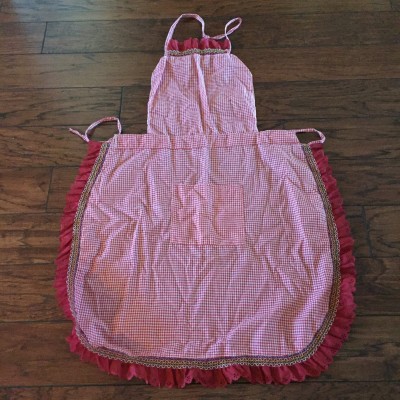
I have the black dress with pearls apron, a half apron with festive fruits, and a very stylish bohemian looking apron, which were all gifts and saved for special occasions.
If you think about the history and use of aprons, there is such a story here. Historically, aprons have been used for ceremonial purposes (think of the Masonic Lodge), by iron smiths and cobblers, by men and women in domestic service, as well as housewives while cleaning and cooking. Of course, my husband has his grilling apron that declares him King of the BBQ.
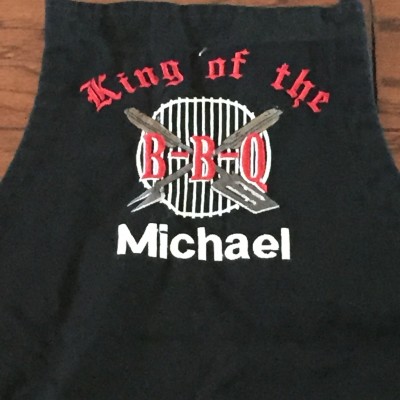
The aprons worn by housewives surely have inspired at least one women’s studies PhD candidate to write a dissertation on the cultural meaning of aprons for women. Since there were probably not any funds in the household budget for purchasing aprons, it is through resourcefulness that women found fabric to make them. Of course, they then decided to decorate and adorn them.
So the next time you don an apron, remember that it represents more than just a way to keep your clothes clean. It is a historically significant textile that represents the thriftiness and ingenuity of generations of women and men who came before you. And it looks good too!
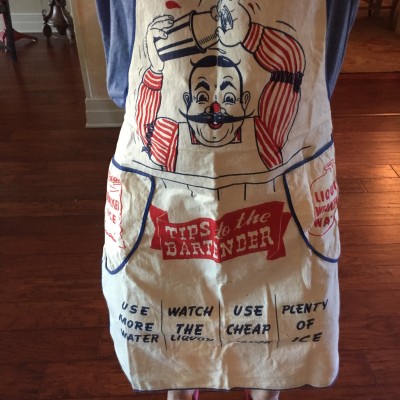
I hope you enjoy these photos.
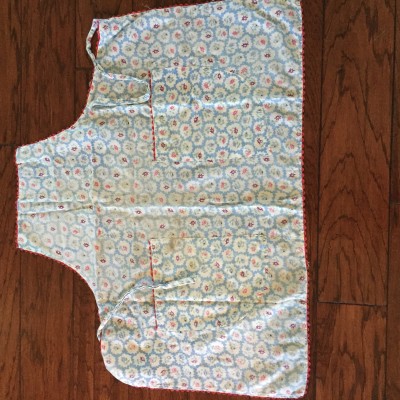
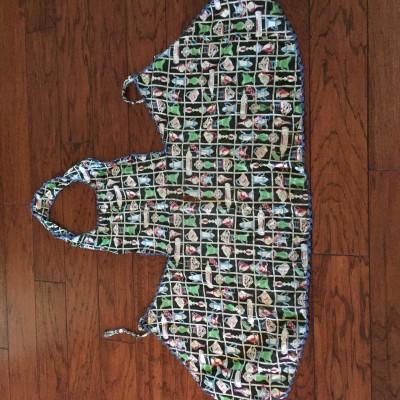
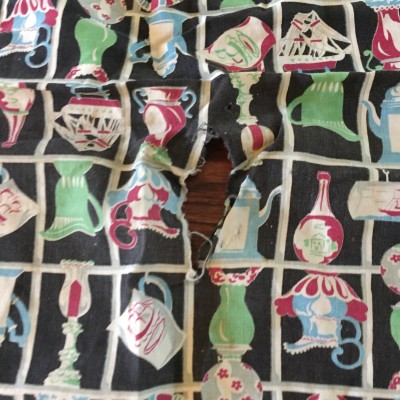
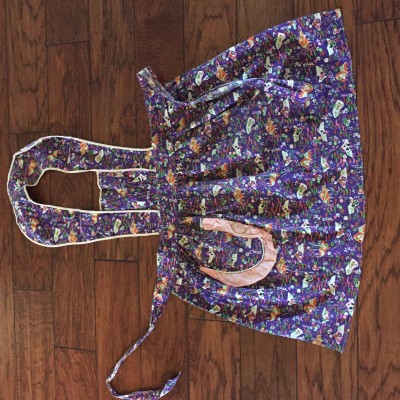
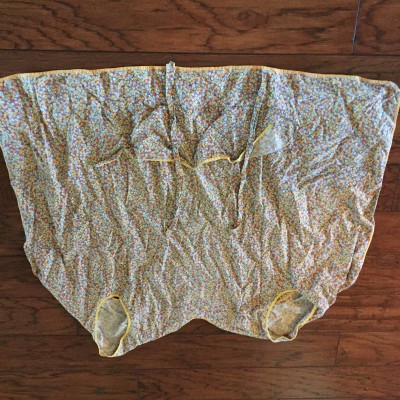
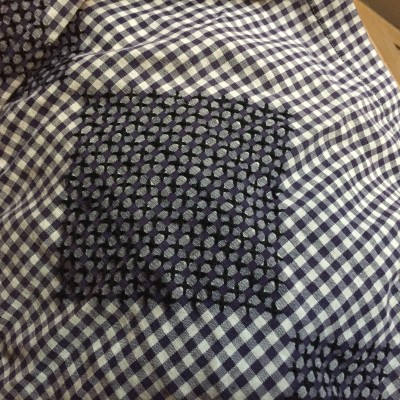
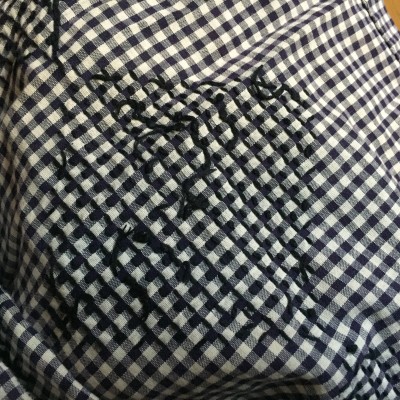
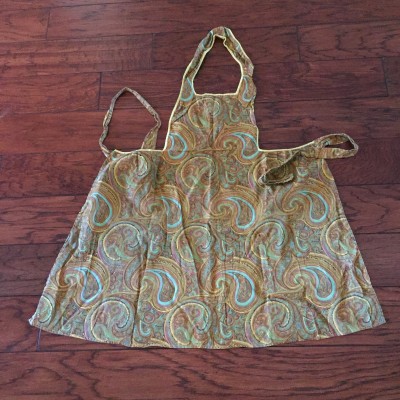
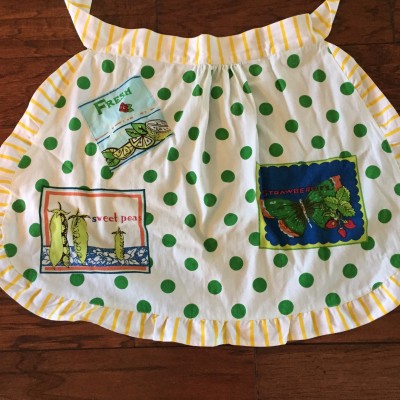
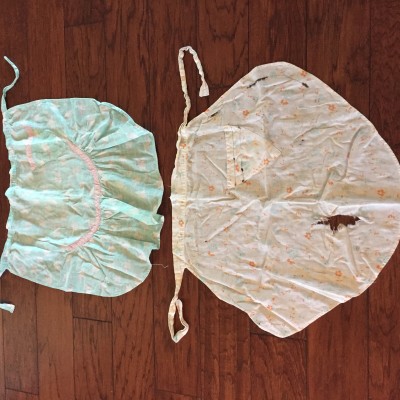
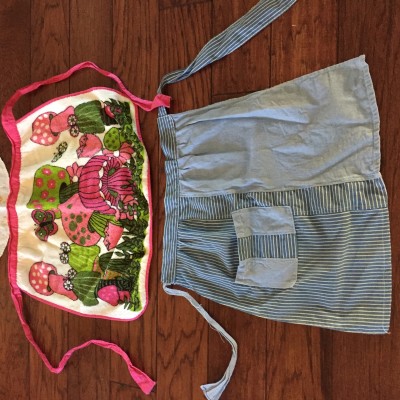

Momma had various hostess aprons, which she wore during the 1950’s, when entertaining at home. The fancy lap aprons in bright green and red are hung over our coffee bar in December.
I’ve used other lap aprons strung on curtain rods through the waist band as kitchen curtains.
Many were my grandma’s, as she always wore a lap apron over her “house dress.”
I guess I must be a mess, because I wear a full apron when I prepare Christmas or Thanksgiving dinners! And when I teach my gkids and their friends in our home cooking schools, I have them wear some of my full aprons too. Just trying to keep them clean and prevent those “flea holes!”